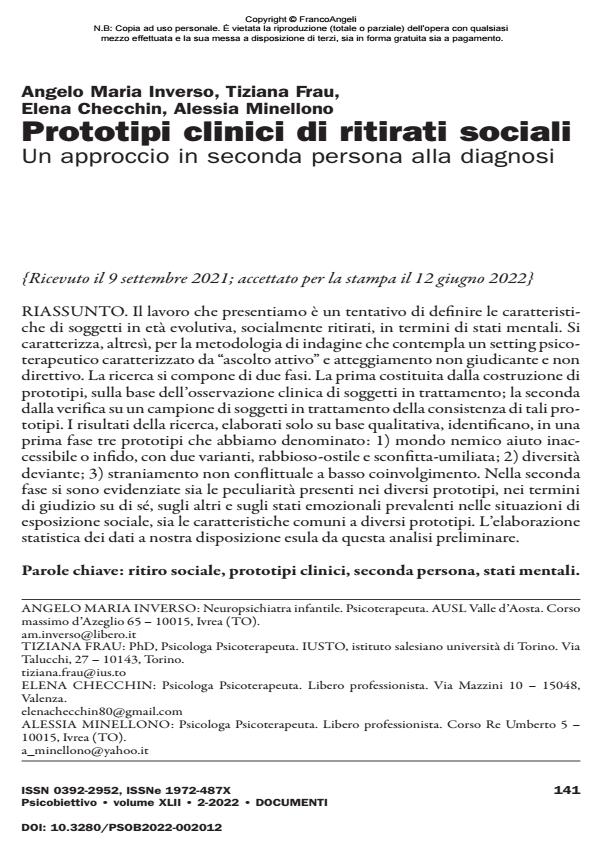Clinical prototypes of social withdrawals. A second person approach to diagnosis
Journal title PSICOBIETTIVO
Author/s Angelo Maria Inverso, Tiziana Frau, Elena Checchin, Alessia Minellono
Publishing Year 2022 Issue 2022/2
Language Italian Pages 18 P. 141-158 File size 666 KB
DOI 10.3280/PSOB2022-002012
DOI is like a bar code for intellectual property: to have more infomation
click here
Below, you can see the article first page
If you want to buy this article in PDF format, you can do it, following the instructions to buy download credits

FrancoAngeli is member of Publishers International Linking Association, Inc (PILA), a not-for-profit association which run the CrossRef service enabling links to and from online scholarly content.
This study describes, using mental states, the main traits of patients in developmental age with social withdrawal. The method of investigation uses a psychotherapeutic setting with "active listening", non-judgmental and non-directive attitude. The research is divided into two phases. In phase one, prototype groups were defined based on clinical observation whilst in phase two, the consistency of these groups is tested on a sample of patients under treatment. The three clinical prototypes identified in the first phase have been named as: 1) Enemy World unattainable/ unreliable Help – with two variants, the angry-hostile and the beaten-humiliated; 2) Deviant diversity; 3) non-confrontational withdrawal with low involvement. During the second phase, we have analysed differences and similarities between the clinical prototypes considering the subjects’ perceptions about themselves, others and the emotional states predominant in situations of social exposure. The statistical analysis of the complete available dataset is out of the scope of this paper.
Keywords: social withdrawal, clinical prototypes, second person approach, mental states.
Angelo Maria Inverso, Tiziana Frau, Elena Checchin, Alessia Minellono, Prototipi clinici di ritirati sociali. Un approccio in seconda persona alla diagnosi in "PSICOBIETTIVO" 2/2022, pp 141-158, DOI: 10.3280/PSOB2022-002012